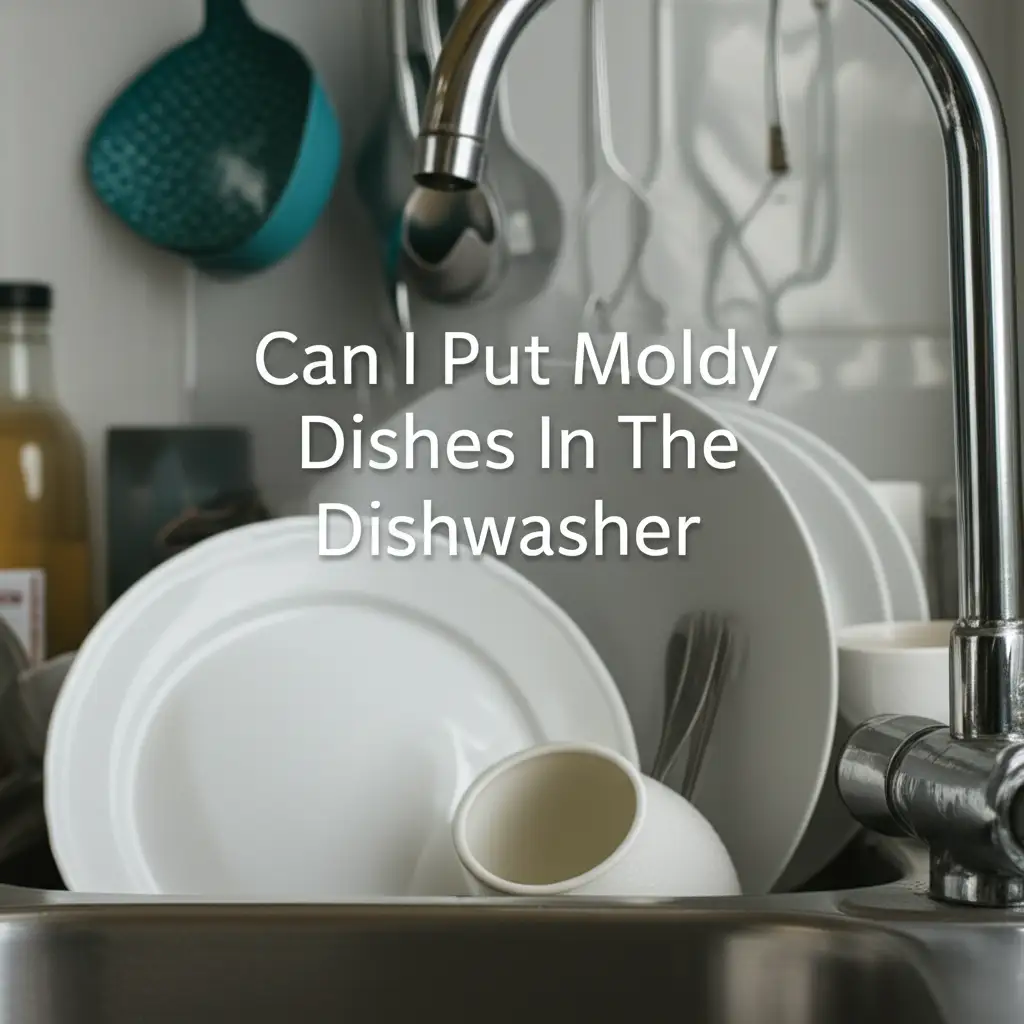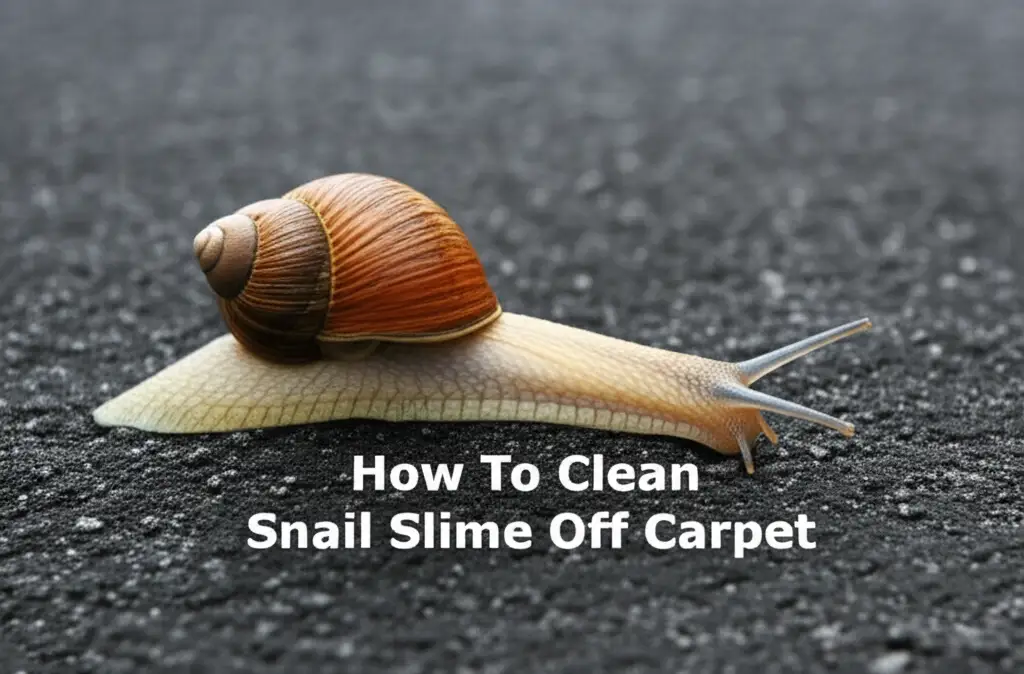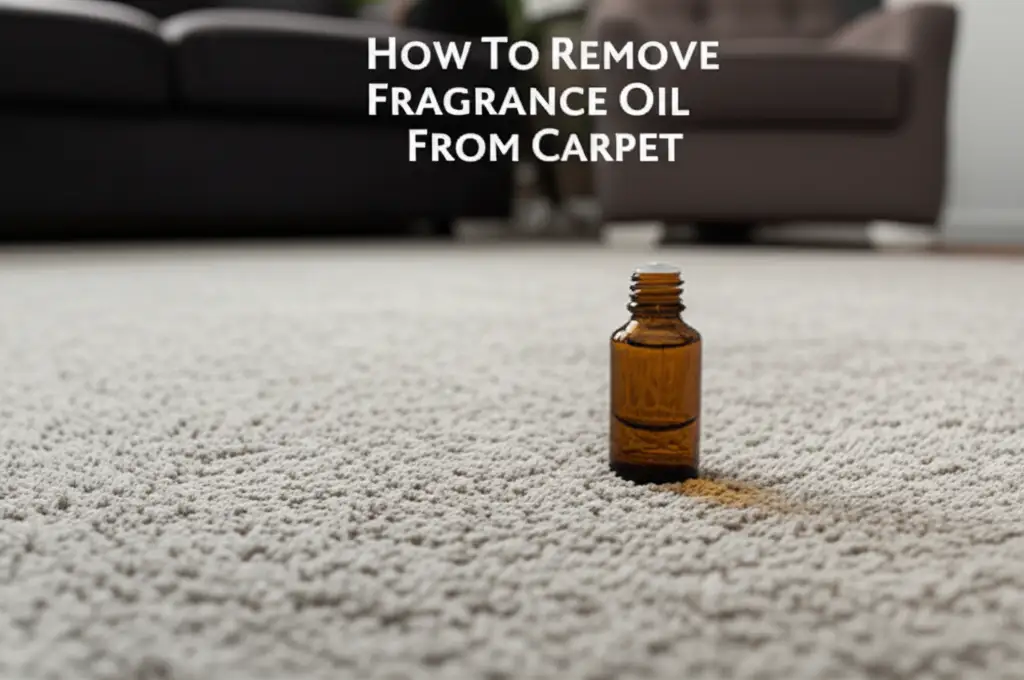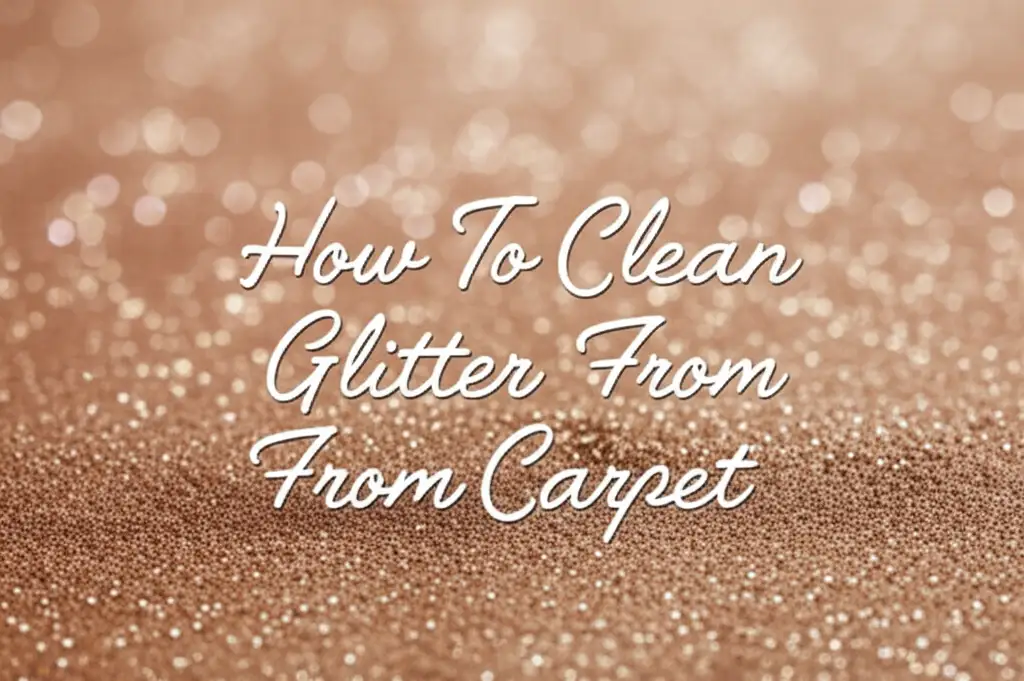· Liora Benning · Home Cleaning · 22 min read
Can You Wash Bbq Grills In The Dishwasher
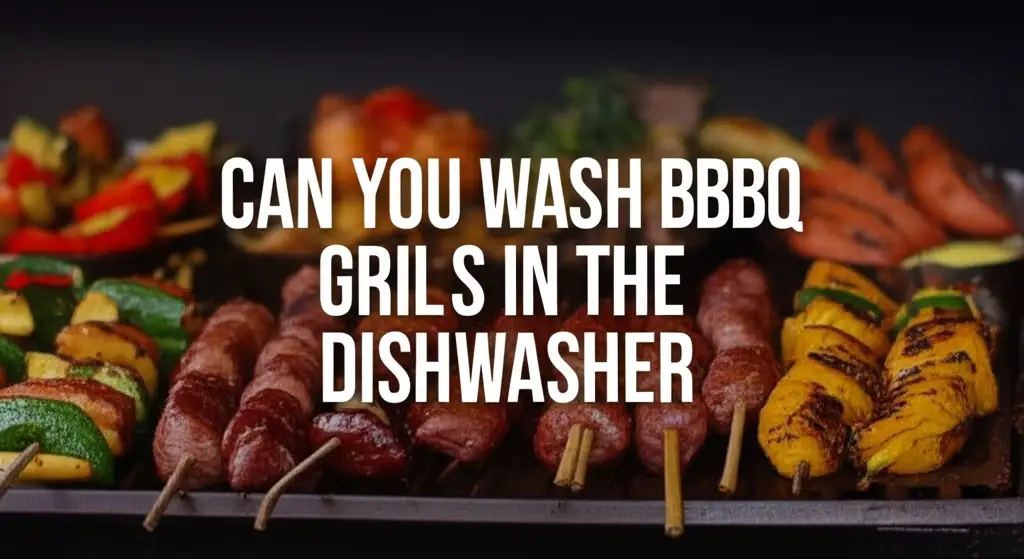
Can You Wash BBQ Grills in the Dishwasher?
After a great barbecue, you face the task of cleaning your grill. Many people wonder if they can simply toss their dirty BBQ grates into the dishwasher. It seems like an easy solution, right? However, the question of whether you can wash BBQ grills in the dishwasher has a nuanced answer, often leading to more harm than good for your precious cooking equipment.
This article will explore why dishwashing is generally not suitable for most BBQ grill grates. We will look at the different materials used in grill construction and how dishwasher cycles affect them. You will learn about the potential damage to your grill parts and even your dishwasher. We will also provide effective manual cleaning methods. This guide helps you keep your BBQ grill in top condition for many years of delicious outdoor cooking.
Takeaway
- Most BBQ grill grates, especially cast iron and some stainless steel, are not safe for dishwasher cleaning.
- Dishwashers can cause rust, discoloration, and damage to grill grates and dishwasher parts.
- Manual cleaning with warm, soapy water and a grill brush is the best method for most grates.
- Always check the manufacturer’s care instructions for your specific grill model.
- Regular maintenance after each use extends the life of your BBQ grill.
Clear Answer to the Main Query
Most BBQ grill grates should not go in the dishwasher. Dishwasher cycles use high heat, harsh detergents, and powerful jets. These elements can cause rust, strip protective coatings, and discolor grill grates. They also leave behind grease that can clog your dishwasher.
Why Dishwashing BBQ Grill Grates is Not a Good Idea
It is tempting to throw everything into the dishwasher for easy cleanup. But when it comes to BBQ grill grates, this shortcut often causes more problems. Grill grates face extreme heat and food residue. They need specific cleaning care that a dishwasher cannot provide. Dishwashers use hot water and strong detergents. These agents can damage the materials of your grill grates. This section explains why this method is generally not recommended.
Understanding Different Grate Materials
BBQ grill grates come in various materials, each with unique cleaning needs. Knowing your grate material is the first step to proper care.
- Cast Iron: Cast iron grates are common. They offer excellent heat retention. However, they are also prone to rust. Dishwashers strip away the seasoning layer that protects cast iron. This layer is a natural, non-stick surface built up over time by cooking fats. Once stripped, the cast iron becomes vulnerable to moisture and rust. Washing cast iron in a dishwasher is a quick way to ruin it.
- Stainless Steel: Stainless steel grates are durable and rust-resistant. Yet, they can still suffer in a dishwasher. Harsh detergents can cause discoloration. High heat might warp thin stainless steel. Food particles can also get stuck. The intense spray may not remove baked-on grease effectively.
- Porcelain-Coated Cast Iron or Steel: These grates have a porcelain enamel layer over metal. This coating provides a non-stick surface and rust protection. Dishwashers can chip or crack this delicate porcelain. Once chipped, the underlying metal is exposed to moisture. This exposure leads to rust and rapid deterioration. The coating can become dull or discolored from the harsh wash.
Potential Damage to Your Dishwasher
Putting greasy, large BBQ grates in your dishwasher is not just bad for the grates. It can also harm your appliance.
- Grease Buildup: BBQ grates often carry a lot of baked-on grease and food debris. Dishwashers are not designed to handle this level of heavy grease. The grease can melt during a wash cycle. It then spreads throughout the dishwasher’s interior. This grease can clog filters, spray arms, and drainage lines. Over time, this buildup affects the dishwasher’s performance. It can also lead to foul odors.
- Clogged Drains and Filters: Food particles from the grill can break off during the wash. These particles are often larger than typical food scraps from plates. They can easily clog your dishwasher’s filter system. A clogged filter reduces cleaning efficiency. It can also cause drainage issues. This may require manual cleaning of the filter, or even professional repair.
- Physical Damage: Grill grates are often heavy and have sharp edges. They can scratch or chip the inner lining of your dishwasher. They might also block the spray arms, preventing proper water circulation. This blockage means your dishes will not get clean. It can also strain the dishwasher’s motor. Many people wonder if they can put other kitchen items like gas stove burners in the dishwasher. While some small parts may be safe, large, heavily soiled items like grill grates pose a greater risk to the appliance itself.
The Risks of Dishwashing BBQ Grill Grates
Choosing to wash your BBQ grill grates in the dishwasher carries several risks. These risks go beyond just superficial damage. They can impact the performance, longevity, and appearance of your grilling equipment. Understanding these potential problems helps you make better cleaning decisions. Protecting your investment in your BBQ grill is important for many years of grilling enjoyment.
Rust and Corrosion Issues
Rust is a major concern when dishwashing grill grates. Most grates contain iron, which rusts when exposed to water and oxygen.
- Stripping of Protective Layers: Many grill grates, especially cast iron, have a seasoned surface. This layer prevents rust and creates a natural non-stick coating. Dishwasher detergents are strong. They can strip this protective layer away. This leaves the bare metal exposed.
- Extended Exposure to Moisture: Unlike handwashing, where you can dry items immediately, dishwasher cycles involve prolonged exposure to hot, soapy water. After the wash, grates remain damp inside the dishwasher for a while. This extended moisture promotes rust formation. Even stainless steel, while rust-resistant, can develop “flash rust” or pitting if its protective layer is compromised.
- Chemical Reactions: Dishwasher detergents contain harsh chemicals. These chemicals are effective on typical kitchen grease and food. However, they can react negatively with the metals in grill grates. This reaction can accelerate corrosion. It also causes discoloration. Your grates might come out looking dull, spotty, or even brown from rust. This is similar to how certain items require specific detergents; for instance, some wonder can you use dishwasher liquid in dishwasher with various items. Grill grates often need gentler treatment than typical dishes.
Grease and Food Particle Buildup
BBQ grills accumulate tough grease and carbonized food. Dishwashers are simply not designed to remove this kind of heavy residue effectively.
- Ineffective Cleaning: Dishwashers circulate water and detergent. They rely on the detergent to break down grease and the water jets to rinse it away. However, the baked-on grease and char from a grill are often too stubborn. They need manual scrubbing. The dishwasher might loosen some grime. But it will not fully clean the grates. This leaves a sticky, unhygienic film.
- Redeposition of Grime: As grease melts off the grates, it circulates in the dishwasher. This can lead to the redeposition of grime onto other dishes. Your clean plates might come out with a greasy film. This defeats the purpose of running a dishwasher. The inside of your dishwasher can also develop a greasy residue. This requires more frequent deep cleaning of the appliance itself.
- Odor Retention: The heavy cooking odors from barbecue can also linger inside your dishwasher. Dishwashers have ventilation. But powerful food smells, especially burnt ones, can stick around. This affects future wash cycles. Your next load of dishes might carry a faint BBQ smell. This is not ideal for everyday plates and cutlery. For specific items like silicone mats, the dishwasher can be an option because they do not have the same rust or heavy grease issues as grill grates.
Optimal Manual Cleaning Methods for BBQ Grills
Since the dishwasher is generally not an option, manual cleaning becomes essential. Manual cleaning gives you control. It allows you to address specific areas and apply the right amount of pressure. This approach ensures your grates are clean without damage. Proper manual cleaning extends the life of your BBQ grill. It also keeps your food tasting great.
Step-by-Step Cleaning for Different Grates
Different grate materials need slightly different cleaning steps. Here is a general guide for the most common types.
For Cast Iron Grates:
- Heat and Scrape: After cooking, while the grill is still warm (but not scorching hot), use a grill brush to scrape off food residue. This makes cleaning much easier.
- Soapy Water Wash: Once cooled, remove the grates. Wash them by hand using warm water and a mild dish soap. Use a stiff brush or a scrub pad. Avoid abrasive scourers that can scratch the surface.
- Rinse and Dry Immediately: Rinse thoroughly with clear water. Dry the grates completely with a towel or paper towels. Do not let them air dry. Rust forms quickly on damp cast iron.
- Re-season: After drying, apply a thin layer of cooking oil (like vegetable or canola oil) to the entire surface. Wipe off any excess. Place the grates back in the grill and heat it for about 15-20 minutes. This process restores the protective seasoning.
For Stainless Steel Grates:
- Heat and Scrape: Like cast iron, scrape while warm. A wire brush works well here.
- Soak and Scrub: For stubborn grime, soak the grates in a mixture of hot water and dish soap. Use a large tub or a dedicated basin. Let them soak for 15-30 minutes.
- Scrub and Rinse: Use a non-abrasive brush or sponge. Scrub off any remaining food or grease. Rinse thoroughly with clean water.
- Dry: Air dry or wipe with a cloth. Stainless steel is less prone to flash rust than cast iron.
For Porcelain-Coated Grates:
- Gentle Scrape: Use a soft-bristle grill brush (nylon or brass, not steel) or a wooden scraper. Steel brushes can chip the porcelain. Scrape gently.
- Warm Soapy Wash: Use warm water and mild dish soap. A sponge or soft cloth is best for scrubbing. Avoid abrasive cleaners or pads.
- Rinse and Dry: Rinse well. Dry with a soft cloth to prevent water spots. Inspect for any chips in the porcelain. If chipped, fix them to prevent rust.
Essential Cleaning Tools
Having the right tools makes manual cleaning more efficient and less of a chore.
- Stiff-Bristle Grill Brush: A good quality grill brush is a must-have. Choose one with stainless steel or brass bristles for durable grates. For porcelain, opt for nylon or brass. Ensure the bristles are strong enough to remove baked-on residue.
- Grill Scraper: Some brushes come with a built-in scraper. A separate heavy-duty scraper can be useful for very stubborn, carbonized bits.
- Bucket or Tub: A large bucket or tub is useful for soaking grates. This softens tough grime before scrubbing.
- Dish Soap and Warm Water: Simple dish soap is effective for dissolving grease. Warm water helps activate the soap and loosen dirt.
- Sponge or Cloth: For gentler scrubbing, especially on porcelain-coated grates.
- Cooking Oil (for Cast Iron): Essential for re-seasoning cast iron after cleaning.
- Gloves: Protect your hands from grease and cleaning solutions.
- Paper Towels or Old Rags: For drying and wiping off excess oil.
Cleaning Specific BBQ Grate Materials
Each BBQ grate material has unique properties. These properties dictate the best cleaning approach. Treating each material correctly prevents damage and ensures a long life for your grill components. Understanding these specifics helps you maintain your grill’s performance and appearance.
Caring for Cast Iron Grates
Cast iron grates are prized for their excellent heat retention. However, they need special care due to their porous nature and tendency to rust.
- Immediate Post-Cook Cleaning: The best time to clean cast iron is right after cooking, while the grates are still warm. Use a stiff wire brush to scrape off food bits. The residual heat helps loosen stuck-on food.
- Hand Washing and Drying: Once the grates cool, remove them. Wash them by hand with warm water and a small amount of mild dish soap. Use a non-metallic brush or sponge to avoid scratching the surface. Rinse them thoroughly. It is crucial to dry cast iron immediately and completely after washing. Use a clean towel. Do not let them air dry, as this can lead to flash rust.
- Re-seasoning is Key: After washing and drying, apply a very thin layer of cooking oil (like vegetable, canola, or flaxseed oil) to the entire surface of the grates. Use a paper towel to wipe off any excess oil. Then, place the grates back in the grill and heat the grill to about 350-400°F (175-200°C) for 15-20 minutes. This process re-seasons the grates, restoring their protective, non-stick layer. This layer prevents rust and improves cooking performance. Neglecting re-seasoning is a common mistake that leads to rusty cast iron.
Maintaining Stainless Steel Grates
Stainless steel grates are durable and generally easier to clean than cast iron. They are less prone to rust, but still benefit from proper care.
- Hot Grill Scrape: The most effective way to clean stainless steel grates is to scrape them while they are hot. After cooking, let the grill cool slightly. Then, use a stiff bristle grill brush (stainless steel bristles work well here) to scrape off food residue. The heat helps carbonized bits detach easily.
- Soak for Stubborn Grime: For heavily soiled grates, you can remove them and soak them in a large tub. Fill the tub with hot water and a generous amount of dish soap. Let them soak for 20-30 minutes. This softens the baked-on grease and food.
- Scrub and Rinse: After soaking, use a non-abrasive scrub brush or pad to clean the grates. Scrub off any remaining grime. Rinse them thoroughly with clean water. Ensure all soap residue is gone.
- Air Dry or Towel Dry: Stainless steel can air dry. However, wiping them dry with a cloth can prevent water spots, especially if your water has high mineral content. For general dishwasher use, understanding cycle times can be helpful, but for grates, manual cleaning is key. For example, knowing how long is the wash cycle on a frigidaire dishwasher doesn’t change the fact that stainless steel grates are better off with handwashing.
Cleaning Porcelain-Coated Grates
Porcelain-coated grates have a smooth, non-stick surface. This coating makes them easier to clean but also more prone to chipping.
- Gentle Brushing: Always use a soft-bristle grill brush (nylon or brass bristles) or a wooden scraper on porcelain-coated grates. Steel wire brushes can chip or scratch the porcelain enamel. This damage exposes the metal underneath, leading to rust. Clean them while the grill is warm to loosen food particles.
- Mild Soap and Soft Cloth: For deeper cleaning, remove the grates once they are cool. Wash them with warm water and a mild dish soap. Use a soft cloth or sponge to gently wipe and scrub the surface. Avoid abrasive cleaners or scouring pads. These can scratch or dull the porcelain finish.
- Rinse and Dry: Rinse the grates thoroughly with clean water to remove all soap residue. Wipe them dry with a soft cloth to prevent water spots and ensure the coating remains pristine. Regularly inspect porcelain grates for chips. If you find any, you may need to touch them up with high-temperature grill paint to prevent rust. This careful approach maintains the integrity of the coating and extends the grate’s life.
When Can You Use the Dishwasher for BBQ Parts?
While full grill grates are largely off-limits for the dishwasher, some smaller BBQ components might be suitable. Knowing which parts can handle a dishwasher cycle can save you time. However, even for these, caution and a proper understanding of materials are vital.
Identifying Dishwasher-Safe Grill Components
Certain smaller, less robust, or non-stick-coated grill accessories may be dishwasher safe. Always check the manufacturer’s instructions for any grill part before putting it in the dishwasher.
- Utensils and Tools: Tongs, spatulas, forks, and other small BBQ tools are often made of stainless steel or high-heat plastic. Most of these are perfectly safe for the dishwasher. Ensure there are no wooden handles that could crack or warp.
- Drip Pans (Some Types): If your grill has disposable aluminum drip pans, you would simply replace them. Reusable metal drip pans might be dishwasher safe, especially if they are stainless steel and not heavily soiled. However, if they contain a lot of baked-on grease, manual pre-cleaning is still better. Heavy grease can clog your dishwasher.
- Small, Non-Coated Grates (Rare): Very rarely, some small, plain stainless steel grates or warming racks may be labeled dishwasher safe by the manufacturer. These are usually thinner and lighter than main cooking grates. Even then, watch for discoloration or rust over time.
- Thermometer Probes: The metal probes of digital thermometers are generally safe for a quick wash in the dishwasher. However, the digital display unit should never go in.
- Side Burner Grates (Specific Models): Some side burner grates, if they are made of plain stainless steel and are small, might tolerate a dishwasher cycle. Again, check the manufacturer’s guide.
Pre-Cleaning for Dishwasher Use
Even for dishwasher-safe grill parts, some pre-cleaning steps can help. This prevents issues and ensures better results.
- Scrape Off Large Debris: Before loading any grill part into the dishwasher, scrape off all large food bits and excess grease. Use a paper towel or a non-abrasive scraper. This reduces the load on your dishwasher’s filter and prevents clogs.
- Rinse Off Loose Grease: Give the parts a quick rinse under hot water to remove any loose grease. This helps prevent grease from redepositing on other dishes or within the dishwasher itself.
- Use Appropriate Cycle and Detergent: For heavily soiled items that are confirmed dishwasher safe, use a heavy-duty or pot-scrubber cycle if your dishwasher has one. For general dishwasher use, understanding different wash options, like what does eco wash mean on dishwasher, can help save energy for regular dishes. Ensure you use a good quality dishwasher detergent. However, remember that even the strongest dishwasher detergent may not fully clean heavy BBQ grease.
- Load Carefully: Arrange grill parts in the dishwasher so they do not block spray arms. They should also not touch other items in a way that could cause scratching. Make sure they are stable and will not move during the wash cycle. Remember that items confirmed dishwasher safe, even small grill components, should be loaded in a way that maximizes cleaning efficiency and protects the dishwasher interior.
Tips for Keeping Your BBQ Grill Clean
Regular cleaning and smart maintenance are crucial for extending your BBQ grill’s life. A clean grill performs better, cooks food more safely, and lasts longer. Building good cleaning habits into your routine makes the task less daunting. These tips will help you keep your grill in excellent condition.
Post-Cookout Cleaning Routine
Cleaning your grill immediately after cooking is the most effective approach. The residual heat helps loosen food particles and grease.
- Burn Off Residue: After you finish cooking, turn the grill up to high heat for about 10-15 minutes. This step burns off any remaining food stuck to the grates. The food turns into ash, making it easier to remove.
- Brush While Warm: Once the grill has cooled down slightly (but is still warm), use a good quality grill brush to scrape the grates. This is the easiest time to remove carbonized food and grease. A stiff wire brush works well for most grates. For porcelain-coated grates, use a softer bristle brush like nylon or brass.
- Wipe Down Exterior: After cleaning the grates, wipe down the exterior of your grill. Use a damp cloth to remove any drips, splatters, or dust. For stainless steel exteriors, use a stainless steel cleaner and wipe with the grain to avoid streaks.
- Clean Drip Tray/Grease Pan: Allow the grill to cool completely. Then, remove and empty the drip tray or grease pan. If it’s a reusable pan, clean it with warm, soapy water. This prevents grease fires and keeps your grill hygienic.
Seasonal Deep Cleaning
Beyond the routine clean, a thorough deep clean a few times a year is essential. This removes accumulated grease and debris from all parts of the grill.
- Disassemble Key Parts: Once or twice a year, or more often if you grill frequently, disassemble your grill. Remove the grates, heat deflectors, burner covers (flame tamers), and burners.
- Soak and Scrub Grates: For grates, follow the specific manual cleaning instructions for their material. You might need to soak them longer for deep cleaning.
- Clean Burners and Deflectors: Use a grill brush or scraper to clean the burner covers and heat deflectors. Inspect the burners for any clogged holes. Use a wire or paper clip to clear any blockages in the burner ports. This ensures even flame distribution.
- Clean Interior and Firebox: Scrape out any loose debris or ash from the bottom of the firebox. Use a shop-vac for thorough removal. Wipe down the interior surfaces with a degreaser or a strong solution of soap and water.
- Inspect Hoses and Connections: Check gas hoses for cracks or leaks. Ensure all connections are tight. This is a good time to check if there are parts that require professional service or replacement.
- Reassemble and Test: Once everything is clean and dry, reassemble your grill. Turn on the gas and perform a leak test (using soapy water) if you disconnected any gas lines. Light the grill to ensure all burners are working correctly.
Extending the Life of Your BBQ Grill
A BBQ grill is an investment. Proper care extends its lifespan, ensuring many years of enjoyable outdoor cooking. Beyond regular cleaning, protective measures and smart storage play a significant role. These efforts prevent rust, wear, and tear, keeping your grill in top working order.
Proper Storage and Covers
How you store your grill when not in use greatly impacts its longevity. Protection from the elements is key.
- Invest in a Quality Grill Cover: A good grill cover is your first line of defense against weather. Choose a cover made from durable, waterproof, and UV-resistant material. A cover protects your grill from rain, snow, sun, and dust. It prevents rust, fading, and general deterioration. Make sure the cover fits your grill model well.
- Store in a Protected Area: If possible, store your grill in a sheltered location during off-seasons or extended periods of non-use. A garage, shed, or covered patio provides extra protection. This minimizes exposure to extreme temperatures and moisture. Even with a cover, direct exposure to harsh weather can accelerate wear.
- Elevate Off the Ground: If your grill sits directly on concrete or damp ground, consider placing it on a paver or a small mat. This prevents moisture from seeping up into the grill’s legs and base, which can lead to rust.
Rust Prevention Measures
Rust is the enemy of most grills. Taking proactive steps can prevent its formation and spread.
- Keep Grates Dry and Oiled (Cast Iron): As mentioned, completely dry cast iron grates immediately after washing. Then, apply a thin layer of cooking oil. This creates a barrier against moisture. For other types of grates, just ensuring they are dry after cleaning helps.
- Regularly Inspect for Rust Spots: Periodically check your grill, especially metal parts, for any signs of rust. Catching rust early makes it easier to treat. Small rust spots on the exterior can often be buffed away with a rust remover and then coated with high-temperature paint.
- Address Scratches and Chips: For porcelain-coated grates or painted metal surfaces, scratches and chips expose the underlying metal. This makes them vulnerable to rust. Use high-temperature grill paint designed for this purpose to touch up any damaged areas promptly. This seals the metal and prevents rust from forming.
- Maintain Burners and Interior: Ensure the interior of your grill, including burner tubes and heat deflectors, is kept clean and dry. Accumulated grease and food debris can trap moisture, leading to rust in hidden areas. Regular deep cleaning helps prevent this.
- Ventilation: If storing your grill under a cover, ensure there is still some airflow to prevent moisture buildup underneath. Some covers have vents.
- Winterizing: For areas with harsh winters, properly winterizing your grill is important. This involves a thorough cleaning, disconnecting gas lines, and proper storage. Some people might even consider general home appliance care, such as knowing does quick wash use less water dishwasher, but for grills, winterizing is a specific and essential process to prevent rust over cold months.
FAQ Section
Can you put Weber grill grates in the dishwasher?
Weber grill grates, like most other brands, are generally not recommended for dishwasher cleaning. Weber offers various grate materials, including porcelain-enameled cast iron, stainless steel, and porcelain-enameled steel. All these materials can be damaged by harsh dishwasher detergents and high heat. The dishwasher can strip seasoning, cause rust, chip porcelain, or discolor stainless steel. Hand washing is the recommended method for cleaning Weber grill grates.
Will dishwashing ruin cast iron grill grates?
Yes, dishwashing will likely ruin cast iron grill grates. Dishwashers strip away the vital seasoned layer that protects cast iron from rust and provides a natural non-stick surface. Without this protection, the grates become highly susceptible to rust. The prolonged exposure to water and harsh detergents causes immediate corrosion. Always hand wash and re-season cast iron grates to maintain their quality.
How do professionals clean BBQ grates?
Professionals typically clean BBQ grates using strong degreasers and manual scrubbing. They often use specialized tools like heavy-duty grill brushes, scrapers, and steam cleaners. For very stubborn grime, they might use commercial-grade oven cleaner or soak the grates in a powerful cleaning solution in a dedicated basin. They always rinse thoroughly and dry the grates completely to prevent rust.
What is the easiest way to clean sticky BBQ grates?
The easiest way to clean sticky BBQ grates is to scrape them while they are still warm after cooking. The heat helps to loosen the baked-on food. Use a sturdy grill brush. For very sticky residue, try heating the grill to high for 10-15 minutes to burn off debris. Then, brush again. For cool grates, soak them in hot, soapy water before scrubbing.
Can I use degreaser on grill grates?
Yes, you can use a degreaser on grill grates, especially for stubborn, baked-on grease. Choose a degreaser specifically designed for grill cleaning or a heavy-duty kitchen degreaser. Always follow the product instructions carefully. Ensure you rinse the grates thoroughly after using a degreaser to remove all chemical residue. This prevents any taste transfer to your food.
How often should I clean my BBQ grill?
You should clean your BBQ grill grates after every use. A quick scrape while the grill is warm is usually enough. Perform a more thorough deep clean every 2-3 months, or more often if you grill frequently. This deep clean involves removing grates, cleaning burners, and wiping the interior. Regular maintenance prevents heavy buildup and keeps your grill performing well.
Conclusion
So, can you wash BBQ grills in the dishwasher? The clear answer is mostly no. While the idea of effortless cleaning is appealing, putting your BBQ grill grates in the dishwasher often leads to damage. This can include rust on cast iron, discoloration on stainless steel, or chips on porcelain coatings. It also risks


